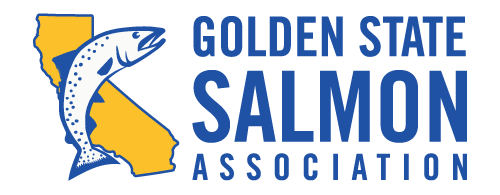FOR IMMEDIATE RELEASE: June 11, 2020
San Francisco — GSSA and allied groups filed suit in state court challenging a permit that allows the California Dept. of Water Resources to divert and pump water from the Delta because of the harm posed to salmon and other native fish. The permit, issued by the California Dept. of Fish and Wildlife, violates the California Endangered Species Act (CESA) and the CA Environmental Quality Act (CEQA), according to the lawsuit.
The state permit allows for boosted water diversions from the Delta at a time when the state and multiple scientific agencies have documented the need to reduce diversions and leave more water in the rivers to maintain salmon and other native wildlife. The permit also ignores harm caused by State Water Project’s operations upstream of the Delta, including to the lower Feather River.
“GSSA took this action because the new state water diversion and pumping operations are not protective of salmon and therefore action is needed to stop them,” said John McManus, president of GSSA.
A key element to be decided by the court is whether the permit must ensure that salmon and other vulnerable species in the Bay-Delta system are fully protected, or whether the State Water Project can simply mitigate for the proportion of water it diverts and ignore the harm being done at the nearby massive federal pumps. The federal Bureau of Reclamation, which operates the dams, canals and pumps of the Central Valley Project (CVP), has refused to mitigate for its damage, as required by the California Endangered Species Act. The suit contends that CESA does not allow the California Department of Fish and Wildlife to ignore the damage being done by the federal water project.
“Little case law exists on CESA so a win could have far reaching environmental benefits,” McManus.
One hoped for outcome would be a court order requiring the federal government to finally and fully comply with CESA, something they’ve claimed immunity from. State and federal law appear to clearly require this but this issue has never been resolved by a court.
The fishing and conservation groups bringing the lawsuit engaged extensively with the State while the permit was under development and made their concerns known at every opportunity. The State realized late in the process that its proposal was too similar to the Trump administration’s new water rules allowing destruction of Central Valley rivers, the Delta, and salmon runs. The State then slightly modified its proposal at the last minute and finalized it without adequate opportunity for public input. This procedural failing has been cited by multiple groups, from conservationists to water users, in similar lawsuits.
Before the Trump administration, all federal and state agencies agreed that salmon and other endangered and threatened wildlife in the Central Valley needed more, not less, protections. The Trump administration reversed this agreement and weakened all flow and temperature protections for salmon and other fish, without biologic, scientific, or legal reasons. Unfortunately the California Dept. of Fish and Wildlife permit still reflects too much of the Trump administration’s approach.
“This suit is important to saving salmon jobs,” said McManus. “The science clearly shows that salmon needed stronger protections but CDFW weakened them when it issued this permit.”
The other groups joining GSSA in the lawsuit are Defenders of Wildlife, the Natural Resources Defense Council, The Bay Institute and SF Baykeeper. Legal representation is being provided pro bono by Stanford Law Clinic.
About GSSA: The Golden State Salmon Association (www.goldenstatesalmon.org) is a coalition of salmon advocates that includes commercial and recreational salmon fishermen and women, businesses, restaurants, a native tribe, environmentalists, elected officials, families and communities that rely on salmon. GSSA’s mission is to restore California salmon for their economic, recreational, commercial, environmental, cultural and health values.
Currently, California’s salmon industry is valued at $1.4 billion in economic activity and 23,000 jobs annually in a normal season and about half that much in economic activity and jobs again in Oregon. Industry workers benefiting from Central Valley salmon stretch from Santa Barbara to northern Oregon. This includes commercial fishermen and women, recreational fishermen and women (fresh and salt water), fish processors, marinas, coastal communities, equipment manufacturers, the hotel and food industry, tribes, and others.
# # # #
Media contact: Cat Kaiser, 855-251-4472, cat@goldenstatesalmon.org
